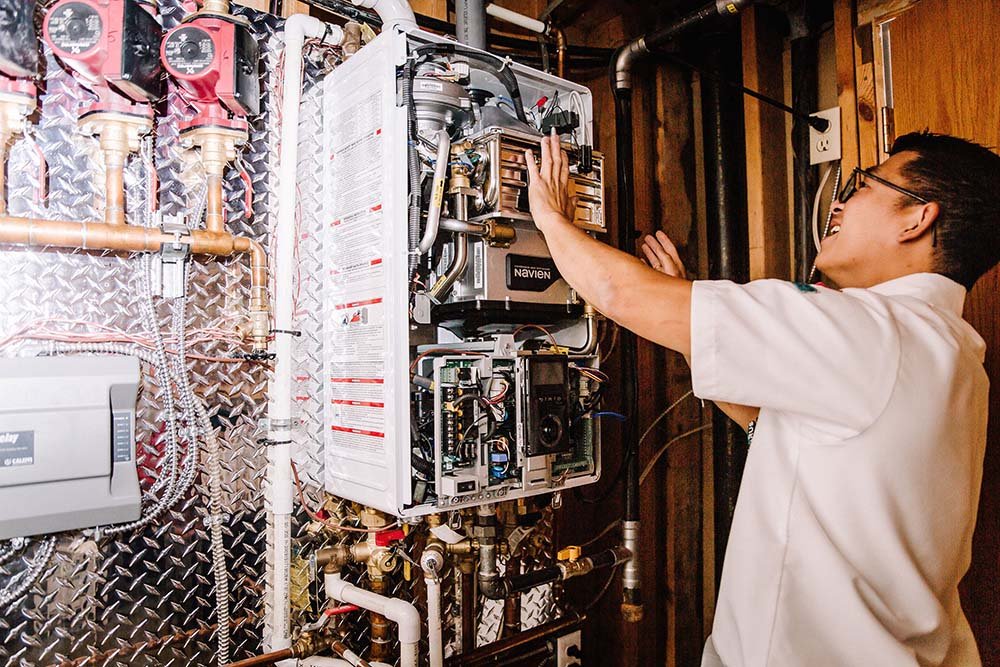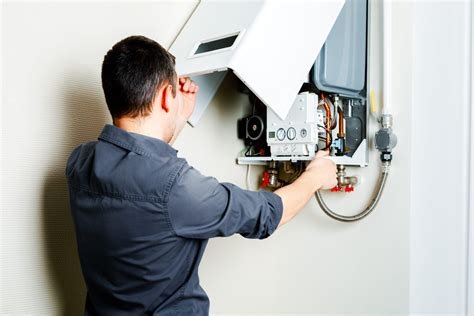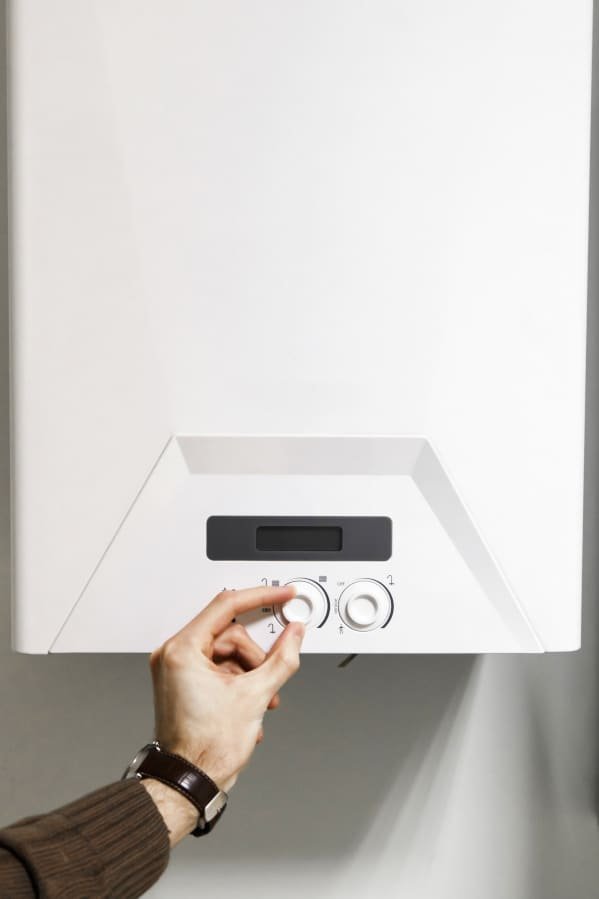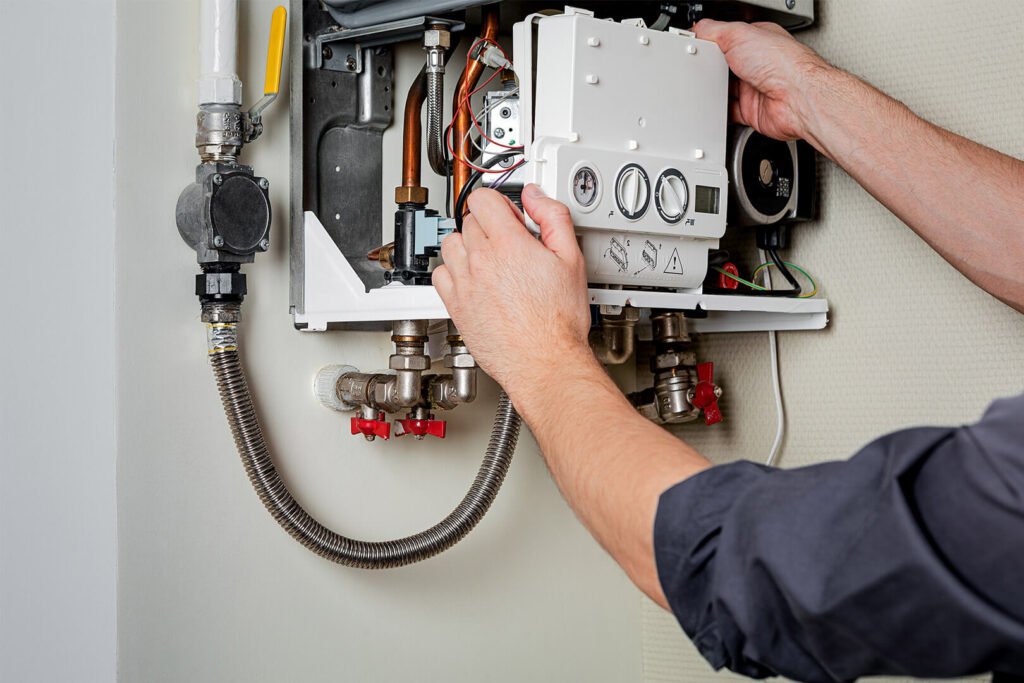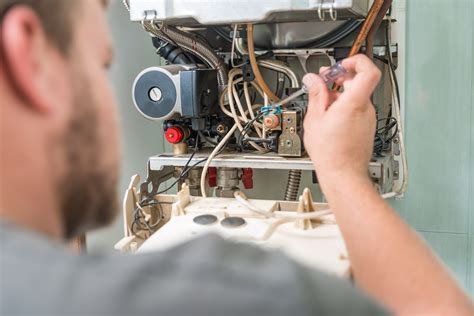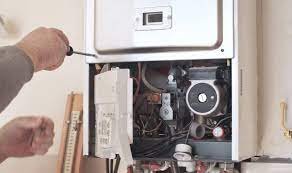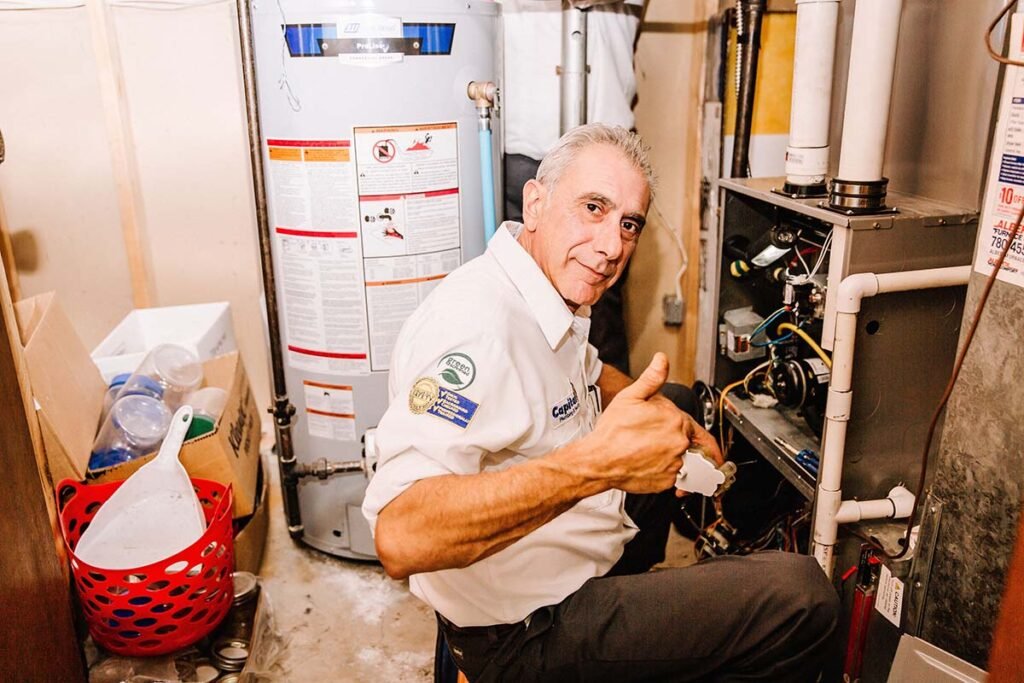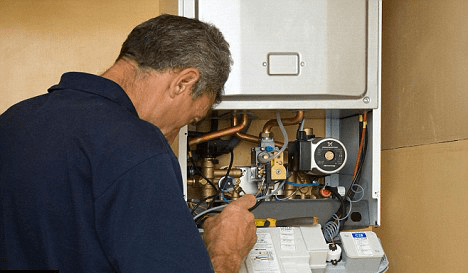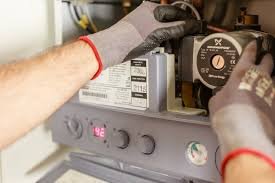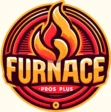Furnace Installation Bilby - Your Reliable Heating Specialists
Furnace Pros Plus is your reputable partner for all your heating requires. With years of experience, we specialize in delivering top-notch heating options to keep your home warm and comfy. Our team of knowledgeable service technicians devote themselves to offering professional heater setup, maintenance, and repair work services. We understand the value of a correctly working heating system, particularly throughout the cooler months. We focus on efficiency, cost, and client satisfaction in every task (big or little). Whether you need a new heater, a routine check-up, or emergency repairs, count on Furnace Pros Plus for reputable and effective heating services that make sure comfort and convenience.
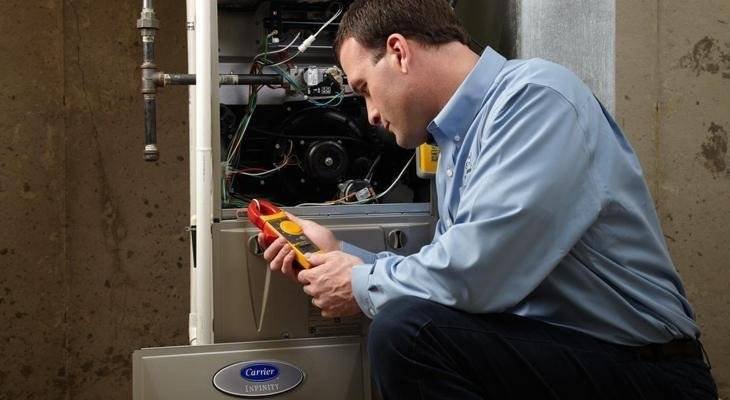
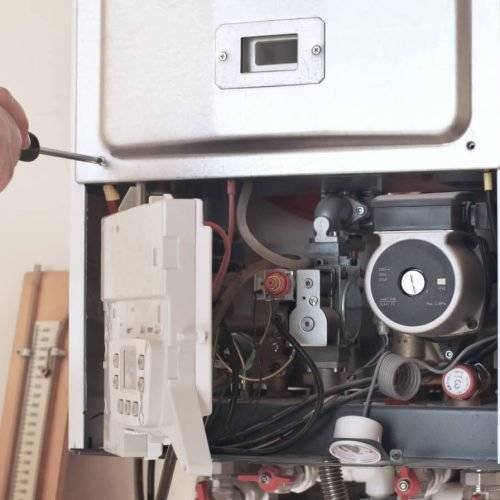
Who Are We?
Domestic Heating Installations and Repairs
Furnace Pros Plus stands out as the leading heater setup and repair work contractor in Bilby, due to its commitment to quality, client satisfaction, and knowledge. This well-established company has earned a strong credibility by regularly delivering reputable and effective heater options customized to the unique needs of each client.
Among the crucial elements that set Furnace Pros Plus apart is its team of extremely knowledgeable and licensed service technicians. Each technician brings a wealth of experience and is rigorously trained to handle a large range of heater systems, from older models to the most recent technology. This ensures that no matter the type or intricacy of the heater, Furnace Pros Plus has the knowledge to effectively identify and resolve any concerns.
Additionally, Furnace Pros Plus puts a high priority on customer service. The business understands that heater issues can be disruptive, especially throughout the severe Bilby winters. As a result, they use timely and reputable service, guaranteeing that their service technicians are available 24/7 to address any emergencies. This responsiveness minimizes downtime and ensures that homes and companies are kept warm and comfy without significant delays.
Furnace Pros Plus likewise sticks out for its commitment to utilizing just top quality parts and products. By partnering with leading makers, the business ensures that every setup, repair work, or maintenance task meets the highest requirements of resilience and efficiency. This not just improves the longevity of the heating systems but likewise improves their performance and energy efficiency, which can result in significant expense savings for clients over time.
The business’s commitment to transparency and reasonable rates even more improves its credibility. Furnace Pros Plus supplies detailed, in advance quotes without surprise costs, guaranteeing that clients understand what they are spending for and can make educated choices about their heater requires.
Lastly, Furnace Pros Plus contributes to the regional neighborhood by staying ecologically conscious and promoting energy-efficient options. By encouraging clients on the best practices and products for lowering energy intake, they help Bilby locals and companies minimize their environmental effect and enjoy better air quality.
All these elements integrate to make Furnace Pros Plus the premier option for anybody searching for reputable and top quality heater setup and repair work services in Bilby, Alberta
How can we help you?
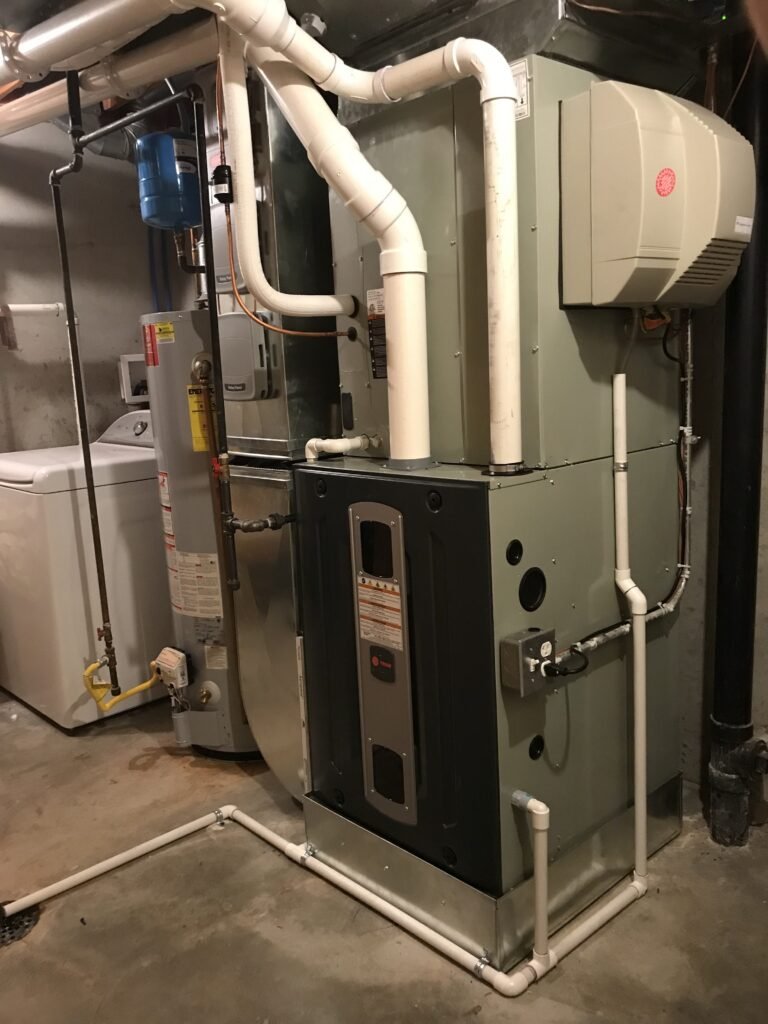
Comprehending the Expense of Installing a Modern Furnace
Intro
A working heater is vital when it pertains to keeping a comfortable and warm home throughout the cooler months. However, there comes a time when installing a new heater is inescapable.
Comprehending the costs associated with this process is vital for homeowners to strategy and spending plan appropriately. This extensive guide explores the various elements influencing the expense of installing a new heater.
Factors Influencing Furnace Installation Expenses
Type of Heater:
- Gas Heating Systems: Popular for their efficiency, they normally cost more in advance however use lower operating expense.
- Electric Furnaces: They are less expensive than gas heating systems. However, electrical models tend to have higher functional costs due to electricity prices.
- Oil Heaters: These are less typical and can be more costly due to the expense of oil.
Furnace Size and Capability
- Square Footage: The size of your home directly impacts the capability required for the heater.
- BTU Score: Higher BTU scores equate to more effective heating systems, which can increase the expense.
Efficiency Ratings
Yearly Fuel Usage Efficiency (AFUE):
Higher AFUE scores mean better efficiency however likewise featured a greater cost.
Brand name and Quality
Top-tier brands typically command higher prices due to their credibility for quality and longevity.
Installation Complexity
- Existing System: Updating from an old system might require extra work and expense.
- Ductwork: The condition and design of existing ductwork can affect setup intricacy.
- Availability: Challenging access to the setup website can increase labour costs.
Labour Expenses
Labour costs differ by region. In addition, the intricacy of the setup can influence labour costs.
Extra Expenses to Consider
- Permits: Some localities require permits for heater setup.
- Inspections: City bylaws might require post-installation inspections for safety compliance.
- Thermostats: Updating to a wise thermostat can incur extra costs.
Average Expense of Furnace Replacement
While prices can differ commonly based on the elements mentioned above, here are some average expense varieties for heater setup:
- Gas Heaters: $2,000 to $5,000.
- Electric Furnaces: $1,000 to $2,500.
- Oil Heaters: $2,500 to $6,000.
These are rough price quotes and can differ based on particular home requirements.
Cost-Saving Tips.
Research and Compare.
Obtain multiple quotes from different professionals to make sure competitive rates.
Look For Refunds and Rewards.
Search for energy efficiency rebates provided by utility business or government programs.
Consider Long-Term Cost Savings.
Buying a more effective heater can reduce energy costs over time.
Conclusion
Setting up a new heater is a substantial financial investment, and comprehending the costs involved is vital for any house owner. By considering the type of heater, setup intricacy, labour costs, and extra expenses, homeowners can better prepare for this needed upgrade. Remember to seek multiple quotes, check out available rebates, and think about long-term energy cost savings when deciding.
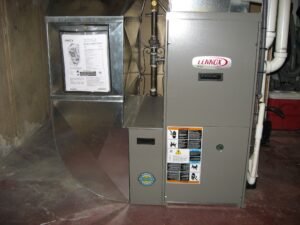
The Right Size Furnace for Your Home: A Comprehensive Guide
Intro
Selecting the right size heater for your home is vital for guaranteeing effective heating and convenience throughout the cooler months. A furnace that’s too little won’t keep your home warm, while one that’s too large can trigger unnecessary energy intake and irregular heating. This guide will help you figure out the perfect heater size for your home.
Comprehending Furnace Sizing: BTU and Efficiency
We determine the size of a furnace in British Thermal Systems (BTU). One BTU is the energy required to raise the temperature of one pound of water by one degree Fahrenheit. When picking a furnace, 2 crucial elements play a role: the BTU rating, showing the heater’s heating capability, and its efficiency rating, measured in Yearly Fuel Usage Efficiency (AFUE).
Computing Your Home’s Heating Requirements
You need to determine your home’s heating requires to figure out the right heater size. The calculation considers elements like square video, environment zone, insulation quality, window type, and home design. Usually, you need roughly 30-60 BTUs per square foot. However, this differs based on your home’s particular attributes.
Climate Zone and Its Effect On Furnace Size
Your geographical area significantly influences the heater size required. Residences in cooler areas, such as [area], require more BTUs per square foot than those in milder climates. Consult a heating specialist for particular recommendations.
The Role of Home Insulation in Furnace Sizing
Great insulation lowers the amount of heat loss, suggesting you can choose a smaller sized heater. Evaluate your home’s insulation in the walls, attic, and windows. Updating insulation can be an economical method to minimize heating needs.
Factors To Consider for Different Kinds Of Heating Systems
There are various types of heating systems, like gas, electrical, and oil. Each type has unique sizing considerations. Gas heating systems are common and effective, electrical heating systems are more straightforward and safer however typically more costly to operate, and professionals set up oil heating systems where natural gas isn’t available.
Significance of Expert A/c Assessment
An expert a/c assessment is important. Service technicians think about all variables, consisting of ductwork and home design, to recommend the ideal heater size. They can perform a Manual J calculation, the market requirement for figuring out heating and cooling loads.
Energy Efficiency and Cost-Effectiveness
Selecting a furnace with a high AFUE rating is vital for energy efficiency and expense savings. Modern heating systems have AFUE scores in between 80% and 98%, showing the percentage of fuel converted into heating. While high-efficiency heating systems are more costly in advance, they can result in significant cost savings in the long run.
Attending To Common Misconceptions About Furnace Sizing
A common misconception is that a bigger heater is constantly better. However, an oversized heater can result in brief biking, where the heater regularly turns on and off, lowering efficiency and lifespan. Alternatively, a small heater struggles to warm your home adequately.
Long-Term Advantages of the Right-Sized Heater
Selecting the right-sized heater has long-term benefits, consisting of consistent convenience, lower energy costs, lowered carbon footprint, and fewer maintenance concerns. It’s a balance in between in advance costs and long-term cost savings.
Conclusion: Making an Informed Choice
Selecting the right size heater is a choice that impacts your home’s convenience and energy efficiency for several years to come. By comprehending the basics of heater sizing and seeking expert assistance, you can make an educated choice that ensures ideal heating for your home.
Remember, the key to an effective and comfy home lies in picking the right heater and regular maintenance and considering other elements like insulation and environment. With this extensive guide, you are well-equipped to choose the ideal heater for your home, offering heat and convenience for many winters.

Replace vs Repair Furnace: A Broad Guide
Intro
Deciding whether to change or fix your heater is a substantial choice for any house owner. The option impacts your instant convenience and safety and has long-term financial ramifications. This extensive guide will check out various elements to think about, helping you make a notified choice.
Comprehending Your Heater
Life expectancy and Types
Heaters normally have a life expectancy of 15-20 years. The two main types are gas and electrical, each with different maintenance and functional costs.
Indications of Trouble
Common signs that your heater might need attention consist of uncommon noises, irregular heating, and increased energy costs.
When to Consider Fixing Your Furnace
Repair is typically the best option for minor concerns or heating systems that are relatively brand-new and still under service warranty.
Cost-Effectiveness
Fixing can be more cost-efficient for minor concerns. However, regular repairs might show a deeper problem.
Environmental Effect
Repair work typically have a lower environmental effect than replacing the whole system.
When Replacement is the Very Best Option
You must think about replacement if your heater is near completion of its lifespan, repairs are becoming significantly costly, or if it could be more energy effective.
Long-term Expense Cost Savings
While the initial expense is higher, a new heater can be more energy-efficient, conserving you cash on energy costs.
Technological Advancements
Newer models come with innovative innovation, such as wise thermostats, which use better temperature control and efficiency.
Weighing Your Choices
Expense Analysis
Compare the expense of repairs over time versus the one-time expense of a new heater.
Energy Efficiency
Evaluate how your current heater’s efficiency is affecting your energy costs.
Home Value
Think about how a new heater might increase the worth of your home, particularly if you prepare to offer in the future.
Expert Recommendations
Looking For Specialist Opinion
Talk to heating and cooling experts to evaluate the state of your current heater and get price quotes for repair work and replacement.
Significance of Routine Upkeep
Routine maintenance can extend the life of your heater, whether you decide to fix or change it.
Conclusion
In conclusion, deciding to fix or change your heater depends upon various elements, consisting of age, condition, expense, and energy efficiency. By considering these elements and seeking expert suggestions, you can make a decision that ensures convenience, safety, and financial vigilance for your home.
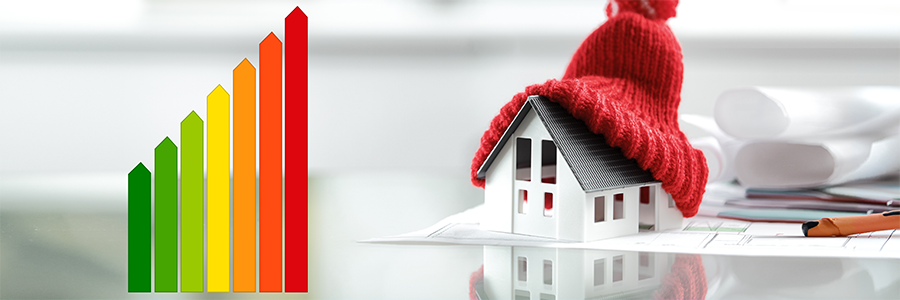
What Season is the Most Inexpensive to Replace Your Furnace?
Will a New Furnace Lower Your Home Insurance?
Intro
Home maintenance can be a substantial financial investment, particularly when it includes vital systems like heating. Among the most considerable costs homeowners deal with is replacing their heater. However, timing this replacement can result in significant cost savings. This post explores the best season to change your heater, considering cost-effectiveness and practicality.
Comprehending Furnace Replacements
The Requirement for Replacement
Before delving into timing, it’s important to understand why and when you must change your heater. Common indicators consist of regular repairs, heating inadequacy, and the system’s age (typically beyond 15-20 years). Replacing an out-of-date or malfunctioning heater improves heating efficiency and ensures safety and convenience throughout cooler months.
Factors Influencing Furnace Rates
A number of elements affect heater prices, consisting of the type of heater, brand name, capability, and the intricacy of setup. Seasonal need is another significant factor, typically overlooked, yet it plays an important role in figuring out the expense.
Finest Time for Replacement: Off-Season
Why Choose Off-Season?
The off-season, primarily spring and early fall, is normally the most inexpensive to change a furnace. The need for heating systems is lower throughout these durations than throughout the peak cold weather. Lower need typically leads to more competitive rates from makers and installers.
Benefits of Off-Season Replacement
- Lower Expenses: Lowered need can result in discounts and more customer negotiating power.
- Schedule of Technicians: a/c service technicians are less hectic throughout these times, guaranteeing more flexible scheduling and quicker setup.
- Adequate Time for Research: The off-season gives homeowners sufficient time to research different heater models and options without the pressure of instant need.
Preparation Ahead
Making use of the off-season requires planning. Expect the need for replacement and schedule it when the need is low. This foresight conserves cash and prevents the hassle of a furnace breaking down in the middle of winter season.
Winter: The Peak Season
Challenges of Winter Season Replacement
- Higher Rates: The need for heater setup and repair work peaks throughout winter season, resulting in higher prices.
- Busy Schedules: Finding a specialist might be more difficult, and you might have to wait longer for an appointment.
- Emergency situation Replacements: If your heater breaks down in winter season, you might have to choose an immediate replacement, which leaves little space for expense contrast or settlement.
Other Factors to consider
Energy Efficiency and Rebates
Buying energy-efficient models might be more costly in advance however can result in long-term cost savings. Likewise, watch out for rebates and tax credits provided for energy-efficient home improvements.
Significance of Routine Upkeep
Routine maintenance can extend the life of your heater, delaying the need for replacement. It’s a vital element of home care that you must pay attention to.
Conclusion
Timing your heater replacement can result in significant cost savings. The off-season, especially spring and early fall, is normally the most cost-efficient period for this financial investment. Preparation, considering energy efficiency, and keeping your current heater can enhance expenses and make sure a warm, comfy home.
Intro
House owners typically contemplate whether upgrading their home appliances and systems can result in cost savings on their home insurance coverage premiums. One typical concern is whether installing a new heater lowers home insurance coverage costs. This post looks into how a new heater setup might affect your home insurance coverage, offering insights into insurance coverage, danger management, and possible cost savings.
Comprehending Home Insurance Premiums
Before diving into the specifics of heating systems and insurance coverage, it’s vital to understand what elements influence home insurance coverage premiums. Insurer evaluate various elements, consisting of:
- Residential Or Commercial Property Age and Condition: Insurance Agents view more recent homes with updated systems as lower risks.
- Place: Geographic area and regional environment can significantly affect insurance coverage rates.
- Safety Functions: The existence of alarms, smoke detectors, and other safety gadgets can reduce premiums.
The Effect of a New Furnace on Home Insurance
Setting up a new heater in your home can have several ramifications for your home insurance coverage:
- Lowered Risk of Fire and Gas Leaks: Modern heating systems with innovative safety features minimize risks like fire or gas leakages. This danger decrease can be favourable in the eyes of insurance coverage suppliers.
- Improved Energy Efficiency: Newer heating systems are typically more energy-efficient, resulting in lower utility costs and a reduced environmental footprint, indirectly impacting insurance coverage considerations.
- Enhanced Home Value: Updating to a new heater can increase your home’s market value, which might affect the protection you need.
Potential Insurance Discounts
Some insurance companies use discounts for home improvements that minimize danger. These might consist of:
- Protective Device Discounts: You might get approved for a discount if your brand-new heater consists of innovative safety features.
- Green Home Discounts: Some insurance providers supply unique discounts for installing energy-efficient home appliances.
Paperwork and Appraisal
To leverage a new heater setup for insurance coverage benefits, think about the following:
- Expert Installation: Ensure a licensed expert installs your heater, which can be a prerequisite for insurance coverage benefits.
- Keep Records: Preserve all receipts and paperwork for the heater purchase and setup.
- Notify Your Insurance Provider: Inform your insurance company about the upgrade. They might require an evaluation or extra paperwork.
Factors to consider Before Updating
While a new heater can use benefits, think about the following:
- Expense vs. Advantage Analysis: Assess if the long-term cost savings on insurance coverage and energy costs validate the initial expense of a new heater.
- Insurance Plan Review: Talk to your insurance coverage agent to understand how a new heater might specifically affect your policy.
Conclusion
Updating to a new heater can reduce your home insurance coverage premiums by lowering danger and enhancing your home’s safety and efficiency. However, the effect differs based on private insurance coverage and the particular features of the heater. It’s a good idea to speak with your insurance coverage company to understand the full benefits and ramifications of a new heater setup.
FAQs
Q: Just how much can I save on my home insurance coverage by installing a new heater?
A: Cost savings differ based on the insurance coverage company and the particular features of the brand-new heater. Talk to your insurance coverage agent for detailed info.
Q: Are there any particular types of heating systems that are more favourable for insurance coverage discounts?
A: Heaters with innovative safety features, high energy efficiency scores, and those that fulfill particular environmental requirements are typically more favourable.
How to Get ready for a Heater Installation
Setting up a new heater in your home is a substantial financial investment and a vital upgrade to your home. It improves the convenience of your home and improves energy efficiency. Correct setup preparation is vital to make sure the setup process is smooth and worry-free. This post will direct you through the needed actions to prepare for a furnace setup.
Comprehending Your Heating Requirements
Examining Your Area: The initial step is to evaluate the size of your space and understand the heating requirements. A too-large or too-small heater for your home can result in inadequacy and higher energy costs. Consulting with a heating expert to figure out the right heater size is vital.
Selecting the Right Furnace: There are various heating systems, consisting of gas, electrical, and oil. Each has benefits and drawbacks; the option depends upon your area, spending plan, and individual preference. Research and speak with professionals to make a notified choice.
Pre-Installation Preparation
Selecting a Certified Installer: We can not overstate the value of selecting a qualified and experienced installer. Search for experts with excellent evaluations and correct certification. They will make sure a correct setup and guide you through the process.
Clearing the Area: Ensure the location where you prepare to set up the heater is clear of any clutter. A tidy location supplies simple access to the setup team and accelerate the process. Get rid of any valuable or fragile items from the vicinity to avoid accidental damage.
Getting ready for Downtime: Depending on the intricacy of the setup, your heating system might be down for a few hours to a day. Strategy appropriately, particularly if the setup is throughout cooler months.
During Installation
Access to Your Home: Ensure the installers have simple access to your home, which includes guaranteeing that parking is available and a clear course to the heater area.
Communication: Stay available to respond to any concerns the installers might have. Clear communication can help resolve any concerns quickly and guarantee your setup goes as planned.
Post-Installation Checks
Examine the Installation: Once the setup is total, check the work with the installer. Ensure that the setup is total and that the location is clean.
Comprehending the System: Have the installer describe the performance of the brand-new heater, consisting of how to change filters and the standard troubleshooting actions.
Guarantee and Paperwork: Ensure you receive all needed paperwork, consisting of service warranty info and running manuals. Keep these documents in a safe place for future reference.
Conclusion
Getting ready for a furnace setup includes comprehending your heating requires, picking the right heater, and selecting a qualified installer. By following these actions, you can make sure a problem-free setup process and enjoy the convenience and efficiency of your brand-new heating system for several years to come. Remember, a little preparation goes a long way in guaranteeing a smooth and effective heater setup.
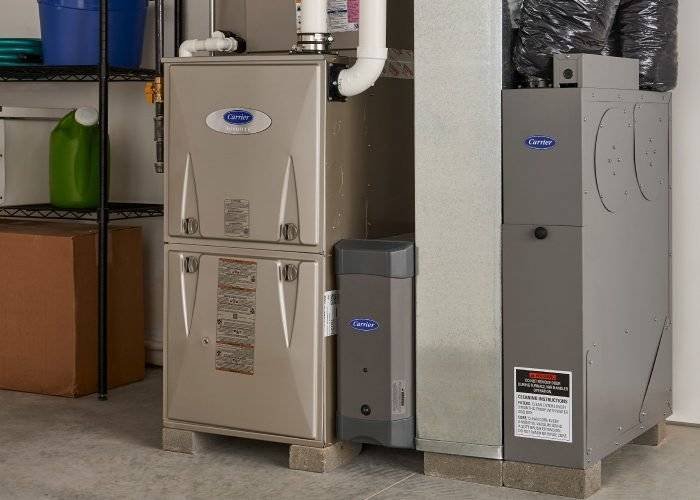
Our Work
